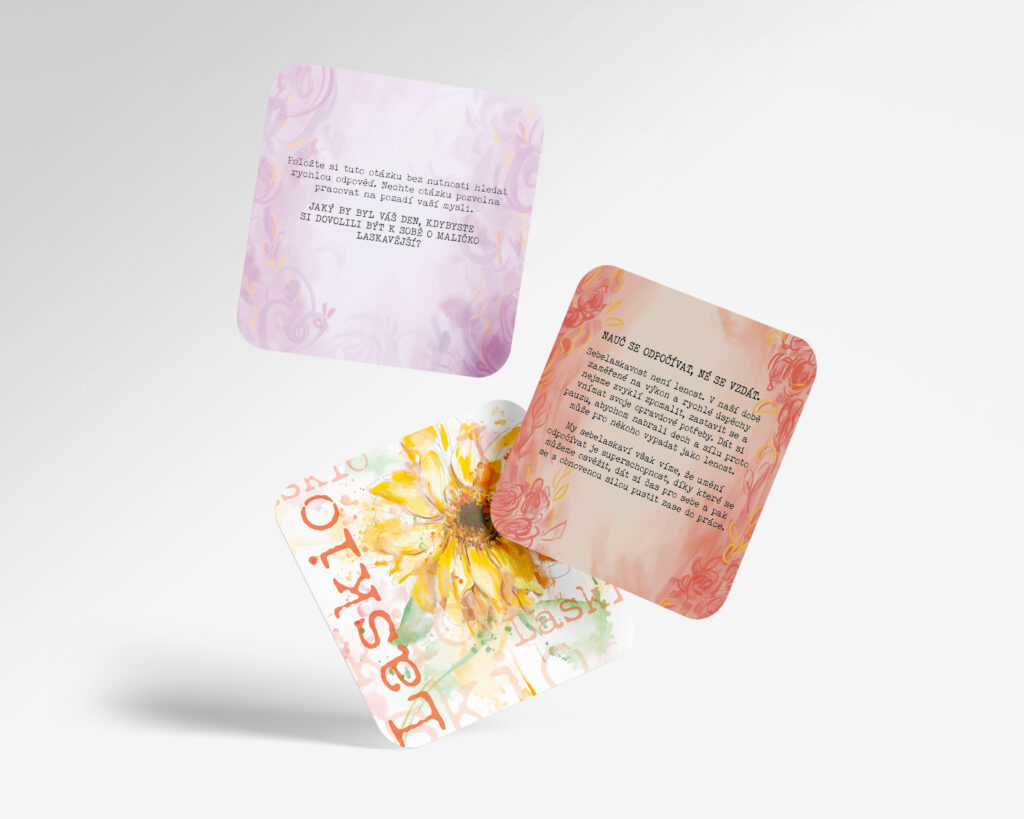
Kindness is a wonderful thing. It is associated with qualities like friendliness, understanding, empathy, and tenderness. The strange thing is that while we know how to treat other people this way, and sometimes we wouldn’t allow ourselves to do anything else, we are often lost in self-compassion. We don’t know it, we don’t want it, and we see it as weakness and selfishness. We are capable of treating ourselves in a really nasty way and it almost seems that unless we punish and blame ourselves, we have no right to move on with our lives. Something has gone wrong, we have failed and we don’t deserve to be happy.
It sounds absurd! And yet it’s happening. Even though there is a relatively “simple” tool to achieve greater life satisfaction. That is, self-compassion. There is now a body of research confirming that a friendly relationship with oneself plays a vital role in developing emotional well-being. It can help us avoid such “pleasures” as self-deprecation with its consequences of depression, stress, fear and anxiety. Instead, it will give us a more benevolent approach to ourselves, other people and life in general.
They make you feel sorry for yourself, for example. In fact, self-pity is one of the powerful fallacies with which self-compassion is associated. Yet it is exactly the opposite. With a self-compassionate attitude, you will finally stop feeling sorry for yourself, despairing over adversity and your constant bad luck. You will learn to accept all of life’s negatives with warm kindness, experience them and embrace them with greater perspective. You will not be consumed by harmful thoughts and you will process the situation better. You will worry less and have a chance to avoid deeper problems in the form of depression, anxiety and other mental burdens.
Another misconception is that self-indulgence is selfish. Because of this selfishness, many people then approach the whole issue with great distrust or do not know how to deal with it. Now imagine that you are taking care of yourself, you can meet your emotional needs, you are balanced and content… how do you think you will treat others at this stage? Well certainly better than if you are frustrated and unhappy. Self-compassion benefits not only you, but also those around you, because you can focus on them much better. You become more generous, more courageous, more loving. So no selfishness.
Or weakness. Weakness, the third of many myths. But for what reason? Even research confirms that self-compassion can toughen us up when the going gets tough, giving us a hefty dose of resilience and the ability to “survive”. Actually, not survive, thrive. The ability to come out of a crisis far stronger. You don’t repress your feelings and pain, you don’t hide from the world, you face your authentic self with all its positives and negatives. What’s so weak about that?
Last but not least, forget about narcissism. Two different worlds. A narcissist positively assesses his own worth, a self-compassionate person makes no such judgments or assessments. A narcissist needs to feel better than others, a self compassionate person can accept their imperfection. A narcissist only wants to hear praise, a self-compassionate person can handle the truth and does not shy away from it. Self-compassion, in short, teaches you to function in an ever-changing environment, to accept yourself with kindness and warmth, especially when things are not going well. In other words, unlike narcissism, it will hold you up in good times and bad.

You won’t become a self-compassionate individual overnight, but becoming aware of the false associations associated with it is a good step. One of the greatest experts on self-compassion is considered to be American Dr. Kristin Neff, who was the first to research and define the field some twenty years ago.
If you would like to practice self-compassion and incorporate it more into your daily life, check out the website of the Czech Institute for Developing (Self) Compassion Laskio. It aims to spread self-compassion awareness based on scientifically based ways of having a healthy and supportive relationship with yourself. In addition to courses, retreats and consultations, it has created special cards that present the principles of self-compassion in a concise and understandable way.
But why are we writing this? You can find one of these cards in our cabin. So if you want to indulge in a little self-compassion during your stay, you already know what to reach for.